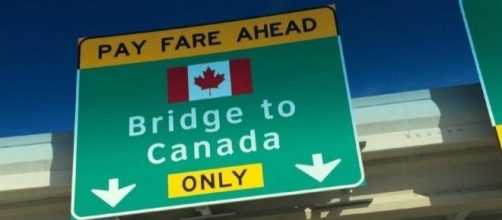Since the election of Donald Trump as President, dozens of Hollywood celebrities threatened to move to Canada in protest of the administration. While there have been no major star relocations, hundreds of others have been making the trip north, often risking life and limb in deep snow and freezing temperatures.
refugees, many who had been awaiting in northern state cities for immigration hearings, have been taking advantage of a few known "weak spots" along the U.S.-Canadian border hoping to restart their lives away from the threats of travel bans, deportations, and alleged door-to-door searches by Immigration and Customs Enforcement officials.
The Canadian provinces of British Columbia, Quebec, and Manitoba have seen the largest influx of illegal border crossings due to their forested landscape and proximity to major U.S. cities.
Safe third country agreement
In 2004, the Canada-U.S. Safe Third Country Agreement was created as part of the Smart Border Action Plan. The agreement states that all refugees must "request refugee protection in the first safe country they arrive in," preventing claimants from entering the system in both North American country. It was also designed to limit the flow of refugees across the border, however the agreement only affects those who attempt to cross into Canada at "official" border entries, where paperwork must be shown.
No contingency was created for illegal crossings.
Upon entering into Canada, they are required to register with government and/or border officials and given an immigration hearing date within 60 days of arrival to the country. Asylum seekers who do not properly file a claim with the government, (or are found to not actually be refugees,) can be prosecuted under the Immigration Act.
Community of 650 people sees new refugees daily
The people seeing the greatest impact of this refugee crisis are those living in the unincorporated community of Emerson, Manitoba, just north of where Minnesota meets North Dakota. Just before Christmas, a pair of men from Ghana were found hitchhiking in the area, severely frostbitten and disorientated.
Both men lost all of their fingers and due to their injuries. This past weekend, 22 refugees were picked up by officials near the community with another 7 arriving Wednesday.
In the province's capital, Winnipeg, organizations have been exhausted by the number of new refugees to the area. Welcome Place, a non-profit that supports newcomers to file claims and settle into Canadian life, generally sees caseloads of about 50 sponsored refugees per staff member. Since this influx from the U.S. began,the organization has redirected nearly all staff and resources to assisting these border crosses, leaving little for regular clients.
In response to the crisis, Manitoba's Premier Brian Pallister offered some solace to organizations like Welcome Place, while insisting the federal government do more to aid refugees.
The province promised funding for 14 temporary housing units, additional staffing for Welcome Place, and $110,000 in refugee supports such as legal services and safe transportation within the province.
Canadian Prime Minister Justin Trudeau, nor the federal government have offered to provide any additional funding or resources to the refugees or the communities assisting them.
Sign at Canadian border asking people to please not sneak in. pic.twitter.com/TNTW73Y3PL
— Tristin Hopper (@TristinHopper) February 22, 2017

